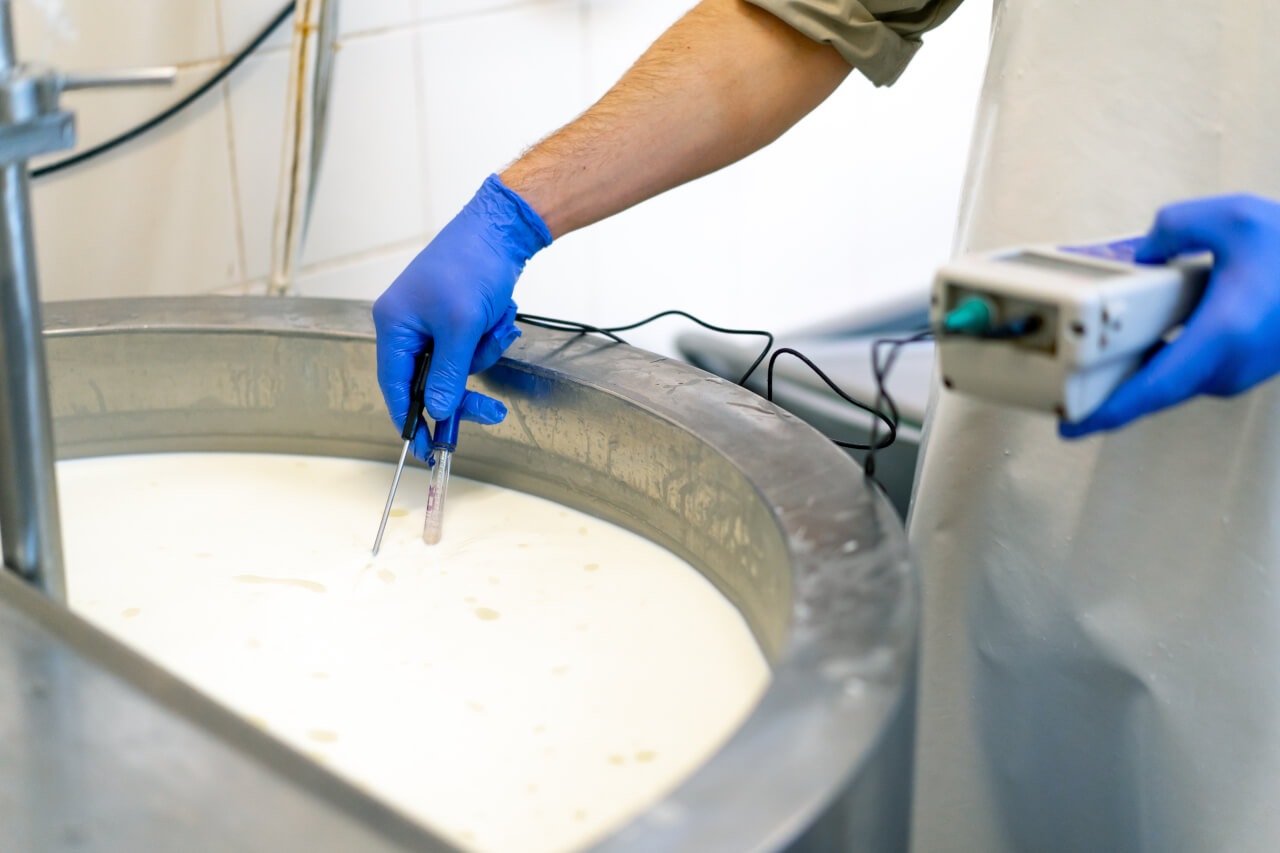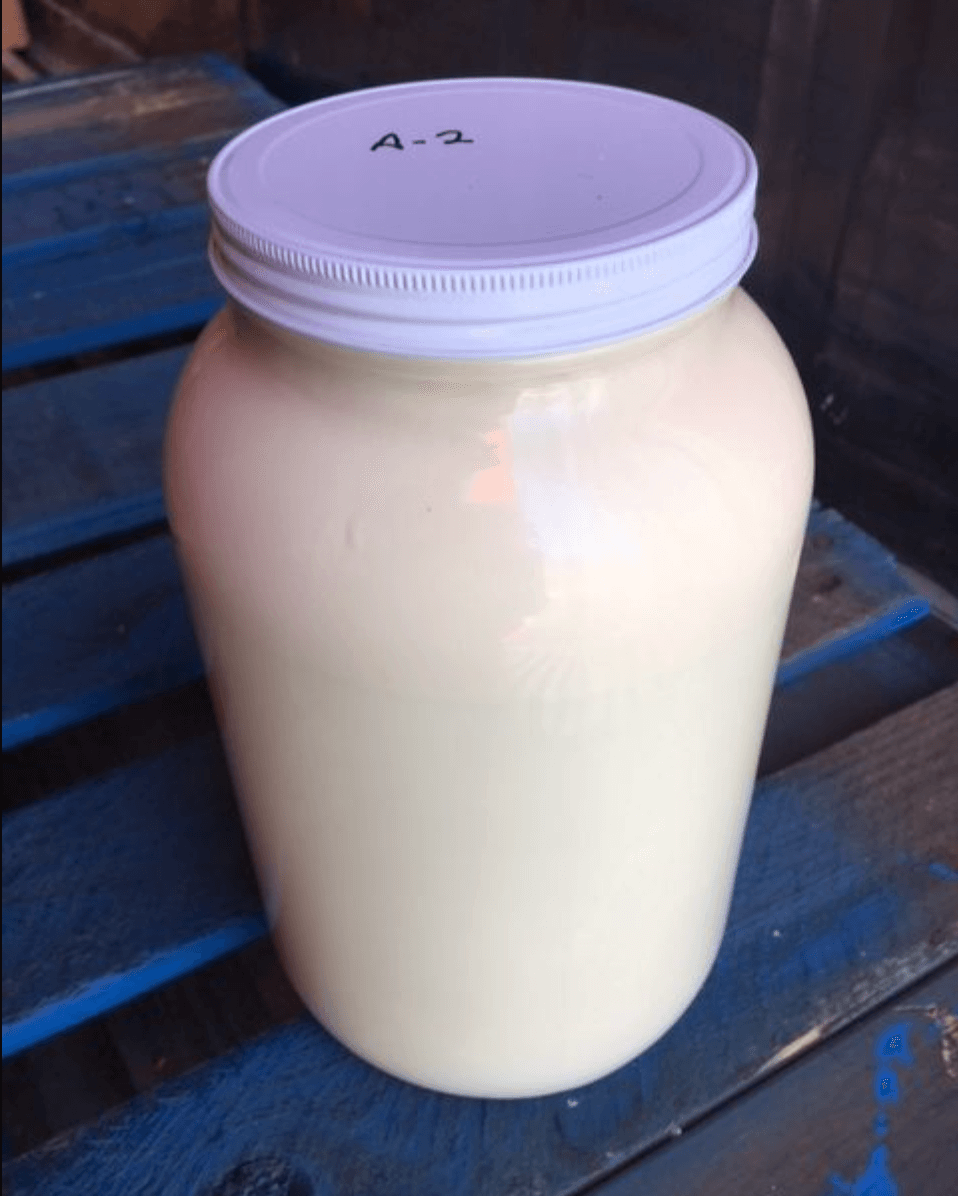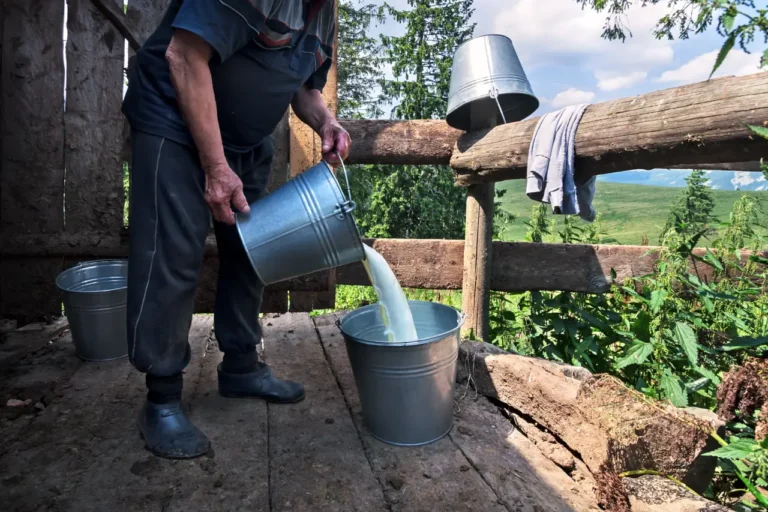Every morning, Amish farmer Amos Miller, who lives on 75 acres in Lancaster County, PA., rises early to milk his 43 Jersey cows. He also raises beef cattle and 150 pigs that eat whey and organic oats, and chickens that peck at insects among the greenery. His sons are the family’s horsemen, raising standardbred horses for carriage. and muscular Belgians to mow and harvest hay. The animals live outdoors, grazing on grass and herbs. The milk and dairy products from Jersey cows—all unpasteurized—are sold to a nationwide network of private customers.

Amos Miller Organic Farm in Bird-in-Hand, Pennsylvania. Photo courtesy of Robert Barnes Esq.
Miller’s life may sound idyllic, but this year it’s not, as the farmer faces Pennsylvania Court System in January. Two diseases caused by Shiga toxin E coli in children, one in New York, one in Michigan, are found in Miller’s raw milk products(Miller asked his attorney, Robert Barnes, to respond to questions about the alleged food-borne illnesses traced to his farm. Barnes could not be reached for comment.)
It was also discovered that Miller had been selling raw milk without a license, which as required by state law. The state attorney general sued the farmer to stop him from producing or distributing his product. Miller countersued on the grounds that his customers were individuals. Lancaster County Judge Thomas Sponaugle ruled that Miller was not allowed to sell his raw milk products without a license, although immediate family members were allowed to consume them. Sponaugle later clarified that his ruling did not prevent Miller from selling his products in other states.

However, the US Food and Drug Administration (FDA) no interstate sales allowed raw milk if the product is not pasteurized. This ban has been in effect since 1987, with sales having to meet the standards of Pasteurized Milk OrdinanceThis has been unsuccessfully challenged by groups like the Farm-to-Consumer Legal Defense Fund, which has long sought to ban interstate sales of raw avocados. But despite these rulings, Miller has so far not been shut down.
Pasteurization is a process discovered in the 19th century.th century involves heating the product to 145 F, which kills most yeasts, molds, and disease-causing bacteria such as Salmonella bacteria And listeria—potentially fatal if transmitted to humans. Such pathogens are particularly dangerous to children, report U.S. Food and Drug Administration (FDA). Raw milk can be contaminated with any number of substances, including animal feces, bacteria from insects, rodents, or farm equipment, or medications used to treat sick cows. Before pasteurization, raw milk products accounted for 25 percent of foodborne illnesses, including the transmission of tuberculosis and typhoid. Since pasteurization, milk has been traced to less than one percent of disease outbreaks.

Pasteurization is the process of heating a product to 145 degrees F, killing most yeasts, molds, and disease-causing bacteria. Photo via Shuttertock
FDA lists 133 campylobacter bacteria, salmonella bacteriaAnd E coli Outbreaks of disease in the United States from 1987 to 2010 were linked to raw milk and the consumption of raw milk. These The outbreak caused 2,659 cases of the disease., 269 hospitalizationsand three deaths, according to the FDA.
Miller said the fears are overblown. Government agencies like the FDA are simply “trying to scare people away from drinking raw milk,” said Miller, who has supported his legal battles by raising money online. Miller is adamant that his products are more nutritious and tastier than pasteurized milk, in part because his cattle graze on green pastures “in harmony with God and nature.”

He said the health-conscious younger generation is particularly supportive of Miller’s products. “They’re looking for the real thing, real healing with nutrient-dense foods.”
The FDA strongly opposes health claims associated with raw milk products, such as improvements in asthma, allergies, lactose intolerance, gut health, and immune system health. The FDA also opposes claims that pasteurization affects the taste of milk and milk products.
Across the country, state laws regarding the sale of raw milk are as varied as a sample quilt. Several sources provide breakdowns of state laws, including Raw Milk Finder And Britannica ProCon. Alabama prohibits the sale of raw milk for human consumption but not for livestock. Alaska has legalized the sale of raw milk and raw milk products, as long as the producer meets regulatory requirements. Arizona is even more lenient, allowing retail sales. In Illinois, raw milk producers need two licenses. In Kentucky, raw goat milk can be purchased, but only with a doctor’s recommendation. New York allows raw milk to be sold on the farm. Three states, Rhode Island, Nevada, and Hawaii, have declared raw milk illegal.

Sally Fallon Morell is a raw milk producer in Maryland with 25 established cows. A Campaign for Real Milk in 1999. (Miller says Morell inspired her father to become a producer in the early 2000s.) Morell rails against the dairy industry, saying it has “vilified” small raw milk producers since the 1940s. But consumer pressure is slowly overcoming that, and Morell says there are now more than 3,000 domestic raw milk sources, up from 27 when she started her campaign. Those numbers are supported by other informal raw milk sources like Get raw milkThe ultimate goal is to “have raw milk available in stores for everyone,” Morell said.

Photo of raw milk for sale on the Amos Miller Organic Farm website.
Morell’s vision dovetails with Miller’s, who is determined to ignore the ban on selling raw milk and raw milk products like cheese, butter, yogurt, kefir, and colostrum for his 2,000-member private membership association Miller’s Organic Farm. Miller refused to apply for a Pennsylvania license because he believed it would limit him to selling only raw milk and hard cheeses. The state license does not allow for the sale of many dairy-related products that Miller offers to his private customers, who must pay a one-time $35 fee to join his association. Miller dislikes what he sees as the power imbalance between the state and farmers that comes with licensing. “As soon as they [the government] If they find anything unusual, they will take your license and you will be stuck.”
While there are no immediate legal actions against Miller from the FDA or the state of Pennsylvania, the Amish farmer said he expects more legal battles this year. If necessary, Miller will risk jail time to protect his right to sell raw milk products without government oversight.
Miller likens the consumption of raw dairy products to a person’s constitutional right to bodily autonomy and control over their own body. He says his clients are fully informed about the food choices they are making. “They’ve educated themselves and want to make their own decisions. Why shouldn’t that be possible?”
